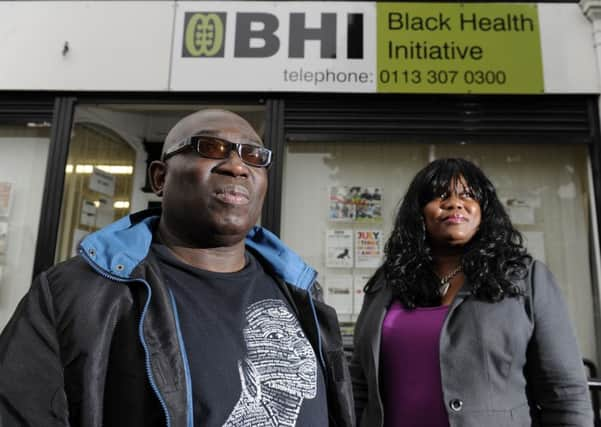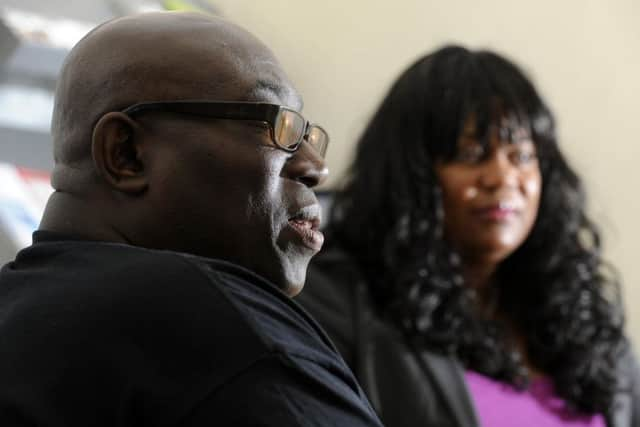Prostate cancer alert as Yorkshire city named as worst in UK for early diagnosis in black men


But Blacka Brown, from Chapeltown, was determined not to add to statistics that have led Public Health England (PHE) to name Leeds as the worst area in the UK for early diagnosis of prostate cancer in black men.
In 2008 the 53-year-old saw his father die from the disease, which black men have a one-in-four chance of developing – they are twice as likely as white men.
Advertisement
Hide AdAdvertisement
Hide AdMr Brown, an ambassador for the Leeds-based Black Health Initiative charity, was one of the few to seek the advice of doctors early after noticing he was going to the toilet more often. He has had prostate cancer for five years.
Leeds is the only Yorkshire area to rank among PHE’s top 20 list of the worst places for early diagnosis among black men. More than two-thirds of black men living with the disease in the city were diagnosed in its later stages.
Mr Brown explained that a major barrier for men with suspected prostate issues is the fear of invasive biopsies. He said: “My dad was a good example, and at the time I didn’t realise what the procedure was. I was there the second time and I’d never heard him swear until he went in. He never had the biopsy – he was fighting them. As a result they couldn’t treat him, it developed, spread to a secondary part of his body and he passed away.”
Another Leeds BHI ambassador to speak out has been Pastor George Crawford, who is currently unwell. His father and older brother have died from the disease, while Pastor George and his four other brothers all have the illness. There are around 3,700 men in Leeds and 2,000 in Sheffield living with prostate cancer.
Advertisement
Hide AdAdvertisement
Hide AdThe BHI has been a major part of the national ‘Hear Me Now’ project, which aims to raise awareness of prostate cancer symptoms and boost access to GPs for ethnic minorities.


BHI chief executive Heather Nelson said: “When you’re working in communities, who see cancer as a taboo and a punishment for something them or their families have done, we need to break down those barriers. The disparities between cancer in the indigenous population and black men have been static since 2002.”
Despite this, progress has been made in raising awareness but it is hoped more will be done to back the likes of Hear Me Now.
Tony Wong, from Prostate Cancer UK, said: “Too many black men remain unaware of the stark danger they face. If we are going to put a stop to the number of black men dying from this disease every year, this needs to change. We need to act together.”
Prostate Cancer UK is bringing its ‘One in Four Tour’ roadshow to Leeds’ Victoria Gardens today from 10am, before a visit to Tudor Square, in Sheffield, on August 16.